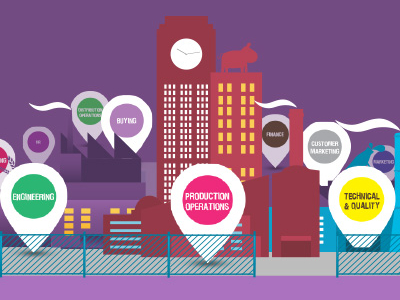What are degree apprenticeships?
A degree apprenticeship can be either a Bachelor’s degree (level 6) or a master’s degree (level 7). There are also foundation degree apprenticeships but these are referred to as ‘higher’ apprenticeships (level 4 or 5) rather than ‘degree’ apprenticeships.
Like any other level of apprenticeship, it is a combination of full-time work-based training and part-time, off-the-job studying. The studying side of the apprenticeship is mandatory and will be delivered by a university.
It will typically take 4-6 years to complete the full apprenticeship and gain the qualification, which, when you think that full-time degree study is 3 years, isn’t as long as it may seem considering they include full-time working hours as well.
These apprenticeships are actually pretty new, the first being rolled out in 2015, and have all been developed by groups made up of expert employers, universities and professional bodies.
So how do they work?
Different apprenticeships will be delivered in different ways. An employer, depending on the university they choose, will have the flexibility to choose whether the study will be conducted through block release (where you take an extended period of time, either at the start or part way through your training, to study full-time), distance learning (where the studying will be online through video lectures, online learning etc.) or blended learning (which is a combination of different learning methods, such as face-to-face and online learning).
The most common structure for a degree apprenticeship is through a combination of block study weeks and supported distance learning. Whilst at work you will be constantly learning and will have a coach or mentor that will help guide you through the apprenticeship programme.
What do you get out of it?
You will get either a bachelor’s or a master’s degree that you don’t have to pay a penny for.
You won’t get a student loan because you are classed as full-time employed, however your employer will cover all of the training/tuition fees for you and pay you salary at the same time.
At the end of a degree apprenticeship you will have gained 4-6 years’ worth of invaluable industry experience that can be carried forward into your career.
And the pay…?
In the first year the minimum an apprentice will be paid is the ‘Apprenticeship Minimum Wage’ (currently £3.70 per hour 2018). If you are over 19 years old, this will then rise to the national living/minimum wage for your age group after their first year. Click here for more info about minimum wages
These are just minimum amounts though and employers may pay more than this.
In addition to the wages, debt-free degree and 4-6 years of experience, you are entitled to an apprentice student discount card. This gives you discounts at places like Dominoes, Pizza Express, Amazon Prime (free for 6 months), cheaper cinema tickets etc.
What do you need?
Typically you will need 3x A levels (grade A-C) or an equivalent industry recognised qualification, but the requirements will vary a lot depending on the programme you chose. Some, like engineering, will require occupational experience to have been built up through the relevant level apprenticeships.
You will almost certainly need a minimum of level 2 English and maths functional skills.
What can you do a degree apprenticeship in?
The Food & Drink Industry has developed the following degree apprenticeships:
- Food & Drink Advanced Engineer - 5 years
- Food Industry Technical Professional - 4 years
- Packaging Professional - 4 years
Click here for a full list of degree apprenticeships across all of the industries.
How do you apply for a degree apprenticeship?
There are a number of ways to find a degree apprenticeship…
- We advertise degree apprenticeships on our courses page
- You can also find universities that deliver degree apprenticeships on the gov.uk website - https://findapprenticeshiptraining.sfa.bis.gov.uk/
- We sometimes advertise degree apprenticeship roles for food & drink companies on our job vacancies page
- You can also use the gov.uk website to find apprenticeship job vacancies https://www.findapprenticeship.service.gov.uk/apprenticeshipsearch
Another option for anyone already in employment is to discuss with your employer to see if they would be willing to support you with a degree apprenticeship.
Applying for a degree apprenticeship is just like applying for any other job vacancy or training course, just follow the individual application process, generally this will be an online form or a request for a CV and covering letter. You must make sure you read everything carefully and provide all information requested by the university or employer.
Any other advice?
It is good practice before making an application to check your social media accounts to ensure there is nothing lurking on your walls/timelines etc. that may hinder your chances should your potential employer search for you.
During an interview the best way to communicate answers is to use the STAR technique. This is:
- Situation - set the scene
- Task - describe the purpose
- Action - Explain what you did
- Result - explain and share the outcome or impact this had
This is a solid structure that is proven to be impressive and successful in these types of situations, if you have this in your head, you keep to the important facts and details and don’t have to worry about maybe going off topic.
 cy
cy






